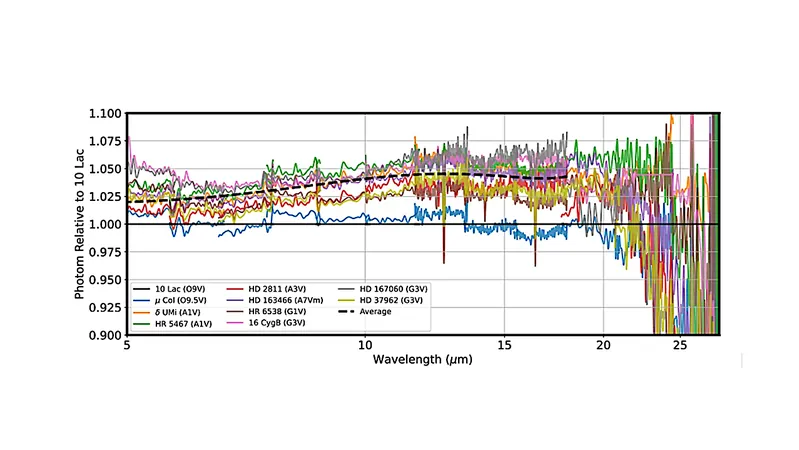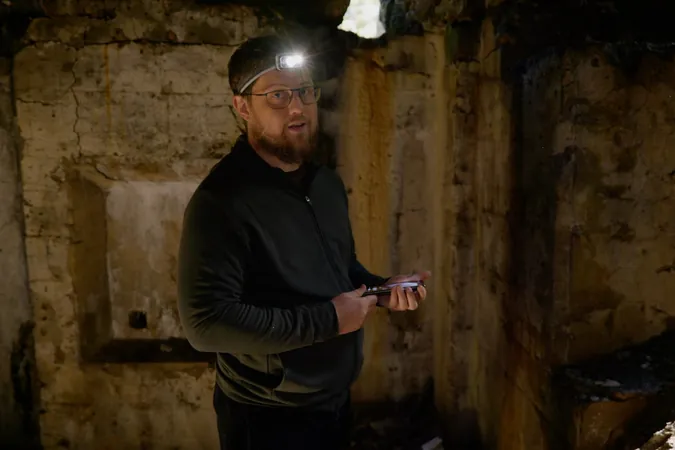
Google Partners with Kairos Power to Revolutionize Energy with Next-Gen Nuclear Reactors
2024-10-15
Author: Jacques
Overview of Google's Partnership with Kairos Power
In a groundbreaking move for corporate sustainability, Google has announced a historic deal to purchase electricity from next-generation nuclear reactors. This agreement, touted as the world’s first corporate procurement of power from advanced small modular reactors (SMRs) that are currently under development, signals a new era in clean energy sourcing.
Details of the Agreement
The tech giant has partnered with engineering firm Kairos Power, which aims to operationalize its first SMR by 2030. Google's commitment extends to acquiring electricity from multiple reactors slated for construction by 2035, as it strives to enhance its clean energy portfolio to meet ambitious climate targets.
Google's Environmental Strategy
As part of its broader environmental strategy, Google is striving to operate on carbon-free energy 24/7 by 2030 and aims to halve its greenhouse gas emissions compared to 2019 levels. Despite these goals, the company reported a staggering 48% increase in total greenhouse gas emissions since 2019, highlighting the urgent need for additional clean energy sources amidst its growing AI investments. CEO Sundar Pichai candidly acknowledged, “The trajectory of AI investments has added to the scale of the task needed... we are evaluating technologies like small modular nuclear reactors.
Industry-Wide Nuclear Energy Exploration
Google is not alone in its pursuit of nuclear energy as a solution for powering its operations sustainably. Other tech industry leaders are also exploring nuclear options. For instance, Amazon Web Services recently announced a data center campus powered by a nuclear facility in Pennsylvania, while Microsoft has made strides to revive the now-defunct Three Mile Island plant.
The Advantages of Next-Gen SMRs
What sets Google’s initiative apart is its focus on next-generation SMRs, which are significantly smaller—about one-tenth to one-quarter the size of traditional nuclear facilities. This modular design is expected to reduce costs and increase accessibility for deployment. Moreover, unlike renewable sources like solar and wind, which are subject to weather conditions, these new reactors can provide a steady electricity supply.
Environmental Concerns and Challenges
However, despite the promise of these technologies, there remain pressing environmental concerns associated with traditional nuclear energy—namely, the challenges tied to uranium mining, enrichment, and the safe disposal of radioactive waste.
Future of Small Modular Reactors
Recent advancements have seen the U.S. Nuclear Regulatory Commission certify its first small modular reactor design, with experts anticipating that the initial SMRs could connect to power grids by the early 2030s. This growing interest from major tech companies is expected to give a significant push to the nuclear energy sector.
Projected Impact of the Partnership
Google’s partnership with Kairos Power is projected to generate up to 500 megawatts of carbon-free energy for U.S. power grids, a pivotal step towards cleaner energy solutions. Kairos Power recently began construction on its first demonstration reactor in Tennessee, showcasing the potential for advanced nuclear energy technologies to play a crucial role in the transition to a more sustainable power landscape.
Conclusion
As the world grapples with climate change, Google and its peers are taking proactive measures to invest in the future of energy—proving that even the largest corporations can lead the charge toward a greener planet.









 Brasil (PT)
Brasil (PT)
 Canada (EN)
Canada (EN)
 Chile (ES)
Chile (ES)
 España (ES)
España (ES)
 France (FR)
France (FR)
 Hong Kong (EN)
Hong Kong (EN)
 Italia (IT)
Italia (IT)
 日本 (JA)
日本 (JA)
 Magyarország (HU)
Magyarország (HU)
 Norge (NO)
Norge (NO)
 Polska (PL)
Polska (PL)
 Schweiz (DE)
Schweiz (DE)
 Singapore (EN)
Singapore (EN)
 Sverige (SV)
Sverige (SV)
 Suomi (FI)
Suomi (FI)
 Türkiye (TR)
Türkiye (TR)